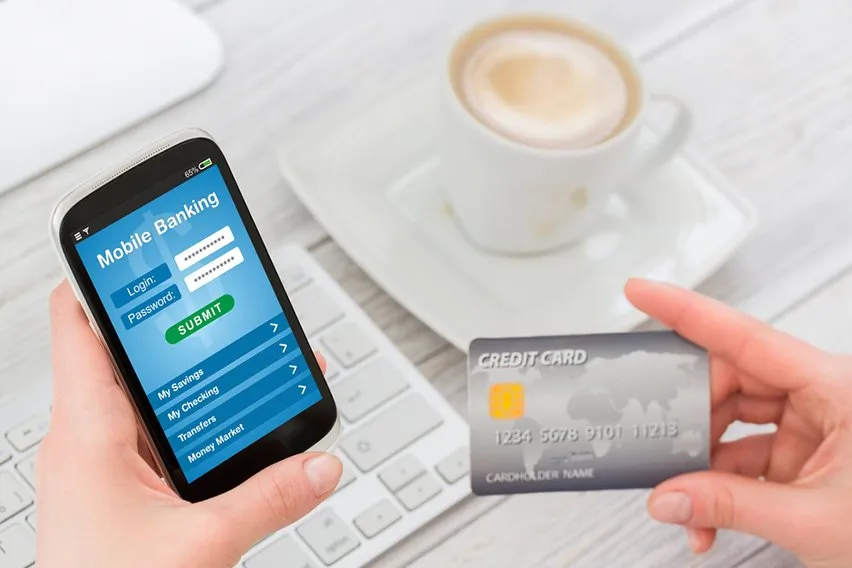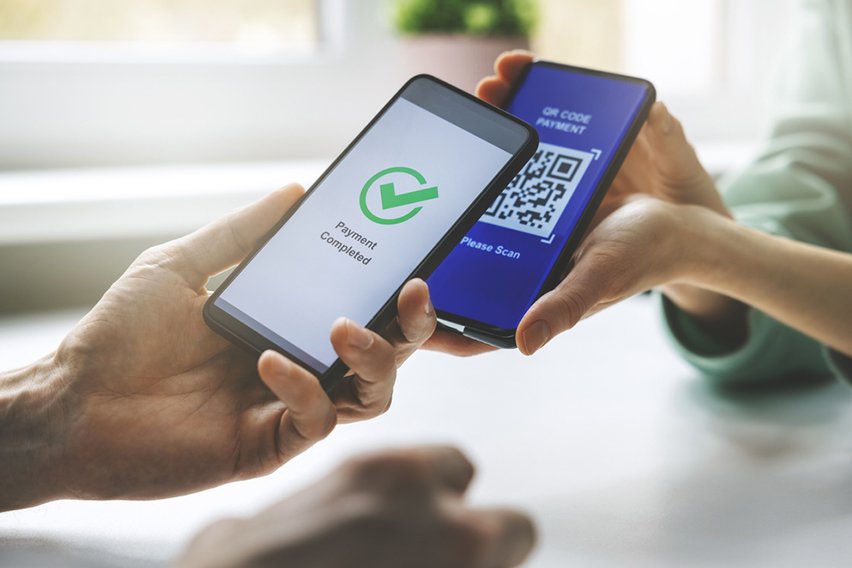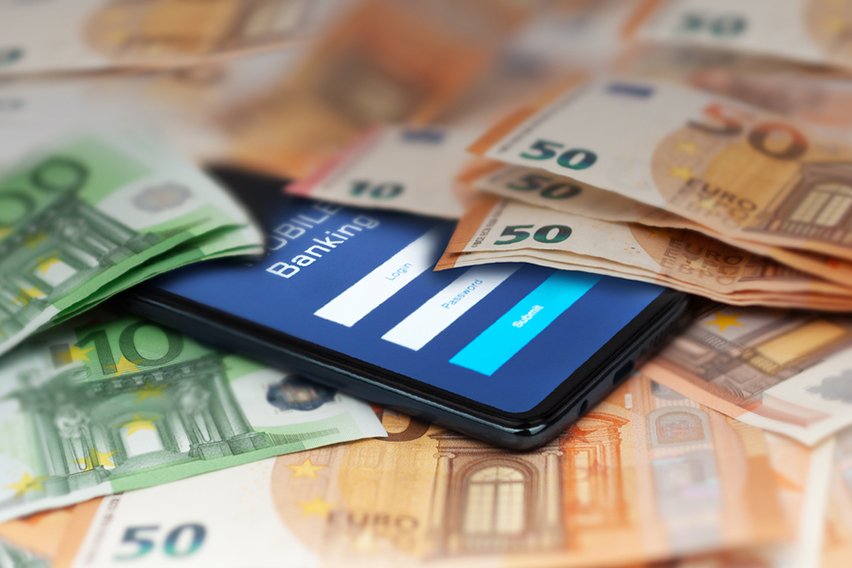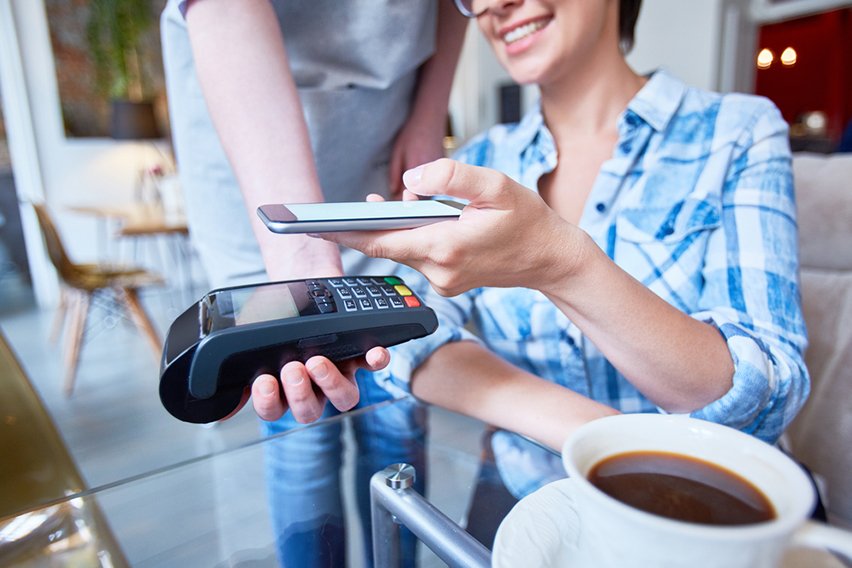What Is eBank (Electronic banking)?

eBanking is fast becoming the most popular way to bank. It definitely has its pros and cons. Learn all about it in this guide.
It’s fair to say that most banking is online banking now. But beyond that, the 2000s brought us internet banks. A new species of bank that lives online.
In today’s guide, we’ll talk about what eBanks are and how they work. Is an internet bank for you? Read on to find out.
Here’s What We’ll Cover:
What Is an eBank?
An eBank is an online banking service that is hosted solely online. There are no physical banking premises for the bank. You can only access your funds using desktop and mobile devices. Usually, you use a mobile app to manage your accounts.
eBanks take advantage of the extra security features that cellphones have like biometrics. You can usually order a debit card as normal.
eBanks have lower overheads than traditional financial institutions so they have far lower fees. They can also offer higher savings interest rates sometimes.

Pros of eBanking
- Zero Banking Fees
A pet peeve for many of us is banking fees. They are the silent but deadly killers that slowly add up over the years. eBanks rarely have banking fees because of the low overheads. - International Payments
Many internet banks are great for international payments; both receiving and sending. Some e-banks even allow you to hold different currencies in your bank account. A notable mention would be Wise. Wise is specifically designed as an international internet bank. You can transfer funds between international banks relatively easily and quickly. However, there are a few other similar alternatives for accepting international payments through banks. For more details Check out our post on How to Receive Money from International Clients, where we explain the top ways to make smooth international transactions. - Advanced Banking Apps
Most traditional banks have mobile apps now. What they lack are all the advanced banking features that ebanks have access to. Ever heard of automated savings with round-ups? That’s when you make a purchase and the extra change automatically goes toward your savings goals. You have savings pots you can name and automate. Some ebanks have detailed spending charts. You can change the pin of your debit card using your app. Mobile banking is super fast. All of these extra features create a more comprehensive banking experience. - Extra Secure Online Banking
Part of the comprehensive nature of e-banking extends to safety. eBanking apps are super safe. They often use biometric locks as secure account logins. You can lock your credit card from your app if it gets stolen. You change your pin number using the app at any time. There’s also no physical mail. Every piece of correspondence is stored securely in your digital wallet.
Cons of eBanking
- Depositing Funds Can Be Difficult
So, with no physical bank locations, how do you deposit cash into your account? It honestly depends on the internet bank you choose. Some require you to send a check. (Yup, you can deposit checks if you have them). Some have partnerships with traditional banks or post offices to accept your cash. In any case, it’s definitely pretty tough to deposit money easily. - Limited Services
There are very few eBanks that have a full range of services. Credit cards, overdrafts, personal, loans, business loans, mortgages, brokerage accounts and more. You can do so much with a traditional bank. At best, your internet bank will have a savings account, checking account and maybe an overdraft.

- No Personal Relationships
Do you know your bank manager? At a traditional bank, you have the benefit of speaking to a real person to help you with big financial decisions. It’s much more comforting to speak to a real person about a small business loan than to ask the algorithm. Customer service is very different. You’ll have a contact center for the bank and rarely reach a real person. - ATM Cash Withdrawal Caps
Electronic banks have little to no ATM networks of their own. This means that you can’t have unlimited withdrawals from the ATM machines around you. Most ebanks will cap the number of free cash withdrawals you can make per month. After that, there will be a cash withdrawal fee.
Key Takeaways
Electronic banking is definitely the way of the future. Their services may be limited now but internet banks are expanding. It’s only a matter of time before they can offer more complex financial features. Hopefully, the article helped you decide if ebanking is for you.
For more in-depth guides on banking and payments, check out our resource hub.
RELATED ARTICLES

 IMPS Vs NEFT: What’s the Difference?
IMPS Vs NEFT: What’s the Difference? How to Confirm Bank Account on PayPal
How to Confirm Bank Account on PayPal The Best Way to Pay Off Mortgage Early: 5 Methods
The Best Way to Pay Off Mortgage Early: 5 Methods How FICA Tips Credit Works & Help Business
How FICA Tips Credit Works & Help Business NEFT Vs RTGS Vs IMPS: What’s the Difference?
NEFT Vs RTGS Vs IMPS: What’s the Difference? What Is Supplemental Pay and How Does It Affect Taxes?
What Is Supplemental Pay and How Does It Affect Taxes?